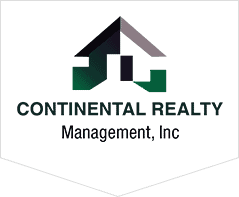When considering property management services, one of the most commonly asked questions revolves around whether property managers handle Section 8 housing. This is an important question for landlords, tenants, and investors alike, as the Section 8 program can offer significant benefits and opportunities. Let’s explore what Section 8 housing entails, how it operates, and whether property managers take on this responsibility.
What is Section 8 Housing?
Section 8, also known as the Housing Choice Voucher Program, is a federal program managed by the U.S. Department of Housing and Urban Development (HUD). It aims to assist low-income individuals and families by providing them with financial aid to cover a portion of their rent. Eligible participants are issued housing vouchers, which they can use to rent homes in the private market.
The program enables tenants to find suitable housing outside of the traditional public housing system and gives landlords the opportunity to fill vacancies with government-backed rent subsidies. However, the landlord or property owner must meet certain requirements and comply with HUD’s regulations to rent out their properties under the program.
The Role of Property Managers in Section 8 Housing
Property managers are often hired to manage rental properties on behalf of landlords, taking over tasks like tenant screening, rent collection, and maintenance. But do they manage Section 8 housing? The answer is generally yes, but it comes with some unique challenges and responsibilities compared to managing non-subsidized rentals.
Here’s how property managers fit into the world of Section 8 housing:
1. Managing Applications and Tenant Screening
Property managers can handle the application process for Section 8 tenants, just like they would for market-rate tenants. However, HUD requires that landlords adhere to non-discriminatory practices and cannot deny an application solely based on the fact that a tenant is receiving Section 8 assistance. Property managers must follow Fair Housing Laws when screening tenants, ensuring that all applicants are evaluated fairly and consistently.
Beyond legal compliance, property managers typically perform background checks and verify the tenant’s rental history and income, even though the tenant’s portion of the rent is lower in Section 8 cases.
2. Inspections and Compliance 
A key aspect of managing Section 8 housing is adhering to the strict guidelines established by HUD. One of the most critical elements is the Housing Quality Standards (HQS) inspection, which ensures the property meets basic health and safety standards.
Property managers play a crucial role in preparing properties for these inspections, coordinating with local housing authorities, and addressing any required repairs. Inspections are conducted before a tenant moves in and periodically during their tenancy to ensure ongoing compliance.
This part of managing Section 8 housing may be more labor-intensive than typical rental management, as the property must pass these regular inspections to continue receiving housing voucher payments.
3. Rent Collection and Payments
The financial aspect of Section 8 housing differs somewhat from traditional rentals. The program is structured so that tenants pay a portion of the rent (typically 30% of their income), and the remainder is paid by the government directly to the landlord or property manager.
Property managers are responsible for tracking these payments and ensuring they’re received on time. This can simplify things in some ways, as a portion of the rent is guaranteed from the government. However, property managers must also manage any discrepancies or delays in payments from the housing authority.
4. Handling Lease Agreements
When managing Section 8 housing, property managers must work with lease agreements that are slightly different from typical ones. HUD provides a tenancy addendum, which outlines the rights and responsibilities of both the landlord and the tenant in Section 8 situations.
Property managers ensure that lease agreements comply with HUD requirements and integrate the addendum into the standard lease. The lease must specify the total rent amount, the tenant’s portion, and the housing authority’s portion.
Additionally, some landlords might set additional requirements in their leases, such as no-smoking policies or pet restrictions. Property managers are responsible for enforcing these rules while maintaining compliance with federal, state, and local laws.
5. Dealing with Housing Authorities
In traditional rental arrangements, property managers interact mainly with tenants and landlords. However, with Section 8 housing, they must also deal with the Public Housing Authority (PHA). This includes handling inspections, receiving payments, and maintaining compliance with program rules.
In some cases, property managers may need to submit documentation or coordinate with the housing authority to address any disputes or questions regarding rent, repairs, or tenant behavior.
Benefits of Property Managers Managing Section 8 Housing
While managing Section 8 housing can be more complex, there are several benefits for landlords who choose to work with property managers to handle their Section 8 tenants: 
1. Guaranteed Payments
A portion of the rent, paid by the government, is guaranteed each month. This provides landlords with a more stable and predictable income stream compared to private tenants who may default on rent payments. Property managers ensure these payments are collected and that the property remains in compliance to avoid any disruptions in payments.
2. Access to a Larger Tenant Pool
The Section 8 program opens up a wider pool of potential tenants, especially in markets where affordable housing is in high demand. Property managers can help landlords tap into this pool, ensuring that vacancies are filled more quickly.
3. Reduced Turnover
Section 8 tenants tend to stay longer in rental properties, as the program is designed to provide long-term housing stability. With the assistance of property managers, landlords can maintain good relationships with tenants and reduce the frequency of turnover, saving time and money on finding new tenants.
4. Compliance and Reduced Legal Risks
Property managers who specialize in Section 8 housing are well-versed in HUD regulations and housing laws, which can reduce the legal risks for landlords. They ensure that properties remain compliant with housing standards and that lease agreements adhere to federal and local requirements.
Challenges of Property Managers Managing Section 8 Housing
While there are benefits, managing Section 8 housing comes with its own set of challenges:
1. Bureaucratic Red Tape
Dealing with government agencies can be time-consuming. From coordinating inspections to managing paperwork, the administrative load is heavier for Section 8 properties. Property managers need to be prepared to navigate this bureaucracy efficiently.
2. Inspection Failures and Delays
Failing a HUD inspection can result in delayed payments or the inability to rent the property under the Section 8 program. This adds pressure on property managers to ensure that the property meets stringent housing quality standards at all times.
3. Tenant Communication
Some Section 8 tenants may require more assistance in understanding lease terms, responsibilities, and rental processes. Property managers may need to invest extra time in communicating with tenants to ensure that they follow the rules and maintain the property adequately.
Conclusion: Is It Worth It for Property Managers to Manage Section 8 Housing?
Property managers do manage Section 8 housing, and many specialize in it due to the unique challenges and opportunities the program presents. The guaranteed government-backed payments, access to a larger pool of tenants, and reduced turnover are significant advantages for landlords. However, the additional administrative responsibilities, potential for inspection failures, and the need to coordinate with public housing authorities require skilled and experienced property managers.
For landlords considering renting their property through the Section 8 program, working with a property manager who understands the intricacies of the program can help navigate the complexities and ensure a successful rental experience.
If you’re a property owner interested in the Section 8 program or looking for a property manager to handle your Section 8 properties, ensure that the property management company you choose has experience with HUD regulations and Section 8 tenants. By doing so, you’ll ensure compliance, reduce risks, and maximize the benefits that this federal program offers.


Recent Comments